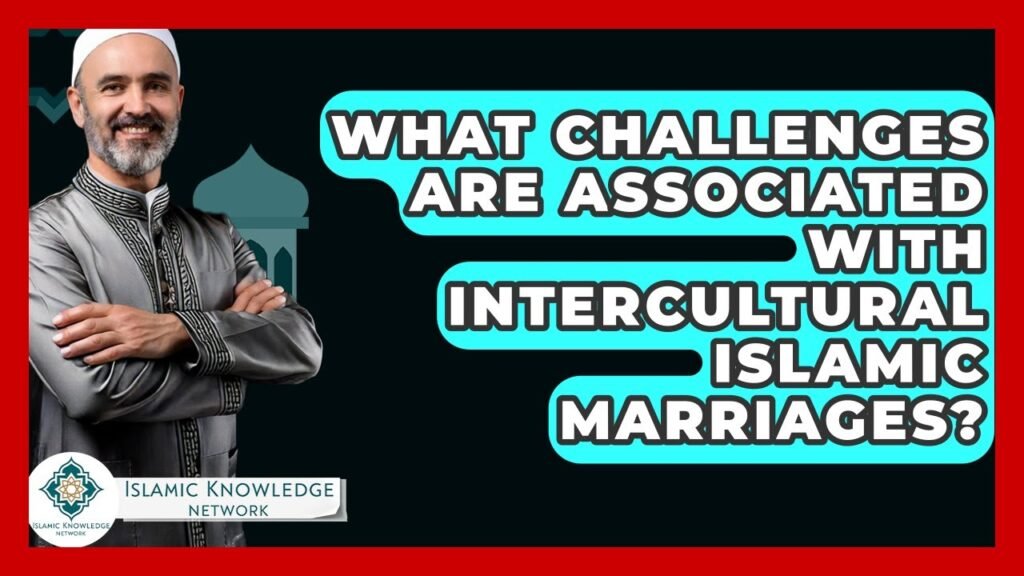You are here to read: What Challenges Exist in Intercultural Islamic Marriages? – A Thoughtfully Written Guide Offering Spiritual Wisdom and Travel Advice for Every Pilgrim who is going on holy journey of Hajj or Umrah.
Intercultural Islamic marriages represent a vibrant tapestry of love, unity, and shared beliefs, but they are not without their challenges. As globalization continues to connect diverse cultures, Muslim communities around the world are increasingly embracing multicultural unions. However, these marriages often encounter unique obstacles rooted in differing cultural practices, family expectations, and varying interpretations of Islamic values. Understanding these challenges is essential for fostering harmonious relationships and promoting respect within the diverse landscape of modern Islamic society.
At Airlink Hajj and Umrah, we recognize the importance of nurturing these intercultural connections. Our blog not only provides insights into the complexities of intercultural Islamic marriages but also offers comprehensive updates on Hajj and Umrah, enriching your spiritual journey. By exploring the multifaceted dynamics of relationships in our globalized world, we aim to equip individuals with the knowledge they need to navigate their personal journeys, whatever they may entail. Join us as we delve into the intricacies of intercultural Islamic marriages and stay informed about all things related to Hajj and Umrah—your trusted source for spiritual guidance and community support.
What Challenges Exist in Intercultural Islamic Marriages?
Intercultural Islamic marriages can be a beautiful union of diverse backgrounds, yet they often come with unique challenges. One primary issue is differing cultural norms and traditions that may conflict. Each partner may hold onto specific practices that are deeply rooted in their respective cultures. For instance, customs related to family roles, wedding ceremonies, or even child-rearing can differ significantly, leading to misunderstandings and tension.
Another significant challenge is the varying levels of religious observance. While both partners may identify as Muslims, their interpretations of Islamic teachings can vary. This disparity can affect daily life, including prayer practices, dietary restrictions, and attendance at community events. Ensuring mutual respect and compromise is essential to navigate these differences.
Additionally, family expectations can complicate intercultural Islamic marriages. Family influence often plays a crucial role in marital dynamics, and parents may have preconceived notions about ideal partnerships. The pressure to meet these expectations can create stress and strain on the couple’s relationship. Open communication and support from both families can help mitigate these challenges.
At Airlink Hajj and Umrah, we understand the importance of unity and shared values in marriage. Keep an eye on our blog for updates on Hajj and Umrah, as these spiritual journeys can also help strengthen bonds across cultures, fostering deeper connections in your relationship.
You're at the middle of this awesome post at AirlinkHajjandUmrah.com through: What Challenges Exist in Intercultural Islamic Marriages?. Keep reading, it gets better!
FAQ on What Challenges Exist in Intercultural Islamic Marriages?
-
What are common cultural differences that affect Islamic marriages?
Cultural traditions related to family roles, gender expectations, and celebrations can vary significantly between different Islamic cultures, leading to misunderstandings and conflicts. -
How can language barriers impact intercultural Islamic marriages?
Language differences might hinder effective communication, create misunderstandings, and make it difficult to express emotions and resolve conflicts.
-
What role do family expectations play in intercultural Islamic marriages?
Families may have traditional expectations regarding marriage, leading to pressure to conform to cultural norms or beliefs, which can cause tension between partners. -
How can differing religious interpretations affect these marriages?
Variations in religious practices and beliefs can create conflicts over issues such as prayer, dietary restrictions, and celebrations, influencing the couple’s daily life and relationship dynamic. - What steps can couples take to address intercultural challenges in their marriage?
Open communication, education about each other’s cultures, and seeking support from family or community resources can help couples navigate and resolve challenges effectively.
That wraps up What Challenges Exist in Intercultural Islamic Marriages?. Thanks for sticking with us till here! Share this: What Challenges Exist in Intercultural Islamic Marriages? with your friends.
Check our homepage at Air Link Hajj & Umrah for more awesome updates.
Some interesting posts are: 1: Umrah Mubarak, 2: When is Umrah closed 2026?, 3: When does Umrah start after Hajj 2026?
Mushu, an experienced Saudi Arabia traveler and writer, shares insightful tips and spiritual reflections to enhance Hajj and Umrah journeys for fellow pilgrims. He has been to Makkah and Madina from 2016 to 2023 many times and his posts will reflect this.







